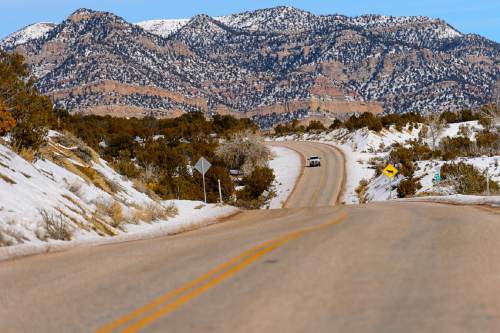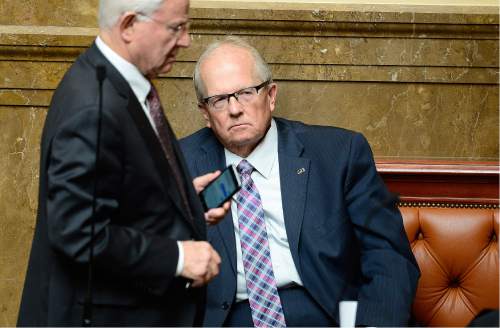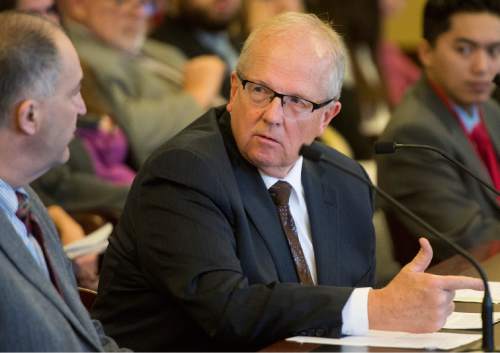This is an archived article that was published on sltrib.com in 2016, and information in the article may be outdated. It is provided only for personal research purposes and may not be reprinted.
Utah Gov. Gary Herbert is under pressure to veto the recently passed Utah Public Land Management Act, which would establish a framework for managing 31 million acres of public land if it is transferred to state control.
The heat is coming not from environmentalists who oppose land transfer, but from the right-wing activists who say the bill would further a socialist agenda by keeping the land in public ownership and stripping county sheriffs' law enforcement authority on these lands.
HB276 was billed as a step toward getting the land returned to the state, but "hidden inside is a move to remove the ability of the local sheriff to protect the people of his county, and give it to a bureaucratically controlled state or regional policing agency," wrote Defending Utah's Ben McClintock on the group's website.
The criticism is ironic because bill sponsor Rep. Mike Noel, R-Kanab, is an outspoken champion for sheriffs' role as the supreme law-enforcement officials in Utah counties that hold vast stretches of federal land.
The rhetoric became so heated that Noel, along with Rep. Keven Stratton, R-Orem, and Lt. Gov. Spencer Cox, hosted a public forum at the Capitol on Monday in response to allegations that the bill "usurps" sheriffs' authority.
"That's a fundamental misunderstanding," Noel said. "The overall top law enforcement person in the county will remain the sheriff."
The bill, which would create a new Division of Land Management, specifically states "the local county sheriff is the primary law enforcement authority with jurisdiction on public land." But the language goes on to say the Department of Natural Resources may employ certified peace officers who would be the primary law enforcement authority "if and when they are deployed." It also states the Division of Wildlife Resources' conservation officers are the primary enforcers with jurisdiction over wildlife regulations.
"Nothing herein shall be construed as enlarging or diminishing the responsibility or authority of a state-certified peace officer in performing the officer's duties on public land," the bill states.
Yet critics still contend the bill amounts to a "war on sheriffs" that merely transfers the "tyrant" from Washington, D.C., to Salt Lake City.
"The state takes ownership and control of all federal lands, it has the power to create all regulations according to this bill, pertaining to this land, it establishes fees for access use of land," said Scott Bradley, a self-proclaimed "constitutional scholar," quoted by Defending Utah. "0And it has the power to create an independent policing agency."
Garfield County Commissioner Leland Pollock dismissed the criticism, wondering whether it is undermining Utah's goal of taking control of public land.
"We've got people taking their eye off the ball coming up with these wild-eyed theories that have nothing to do with what we do every day: keeping the public safe, keeping multiaccess for them to public lands," Pollock said.
The Utah Sheriffs' Association issued a statement endorsing HB276, and individual sheriffs spoke at the forum, arguing public land should remain public and saying they would welcome state participation in law enforcement.
"We are already shorthanded as it is now," said Garfield County Sheriff Danny Perkins.
Twitter: @brianmaffly









